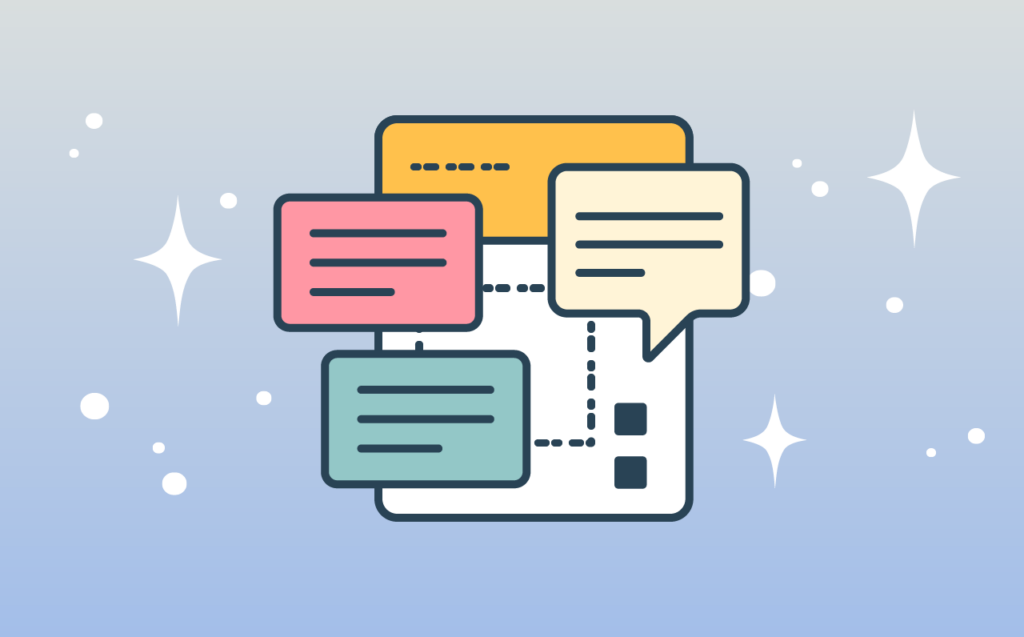In our homes and everyday lives, Artificial Intelligence (AI) has grown to be a constant presence. We’ve become accustomed to small, AI-powered conveniences—like Alexa turning on our favorite playlist or Roomba keeping our floors clean. We’ve swapped out paper maps for the likes of Waze or Google Maps, trusting AI to guide us through the world’s busiest streets. We keep our most important personal data and accounts secure with facial recognition.
While these broad-use applications of AI are designed to help large swaths of the population, there’s also the realm of specialized AI. These systems are focused on tackling specific, and often complex, tasks—like deciphering human emotion or spotting intricate patterns in data. It’s exactly the type of AI that’s starting to make big waves in the professional world, especially in behavioral health.
As we get more comfortable with AI in our daily lives, it’s important for us—as behavioral health providers—to consider the role it might play in our clinical practice. Once we bring intelligent technology into the treatment room, the benefit isn’t merely convenience; it has the potential to actually change lives.
The Emergence of AI in Mental Health
The leap from general-purpose AI in our everyday lives to behavioral health-specific AI in a healthcare setting is a significant one. As you might expect, the process of developing specialty-specific healthcare AI goes way beyond what we see with even the highest-level general use tools, like Chat GPT.
Training AI Models with Specialized Datasets
At Eleos, for example, we’ve trained our AI models with data from over 50,000 real mental health sessions. And as we sourced that input, it wasn’t just about collecting a certain quantity of therapy minutes; it was also about the quality and authenticity of those interactions.
That’s because we’re teaching our AI not only to process information, but also to understand the nuances of therapeutic dialogue—something that far exceeds the capabilities of everyday AI. This method of model training and fine-tuning is crucial for the AI to grasp not just the language, but also the emotional subtleties that exist within these conversations.
Integrating Human Expertise with Innovative Technology
This is also why human experts must be heavily involved in training these models. Here at Eleos, we have an entire team of mental health professionals who review and annotate session data, ensuring that the AI’s learning aligns with real-world therapy practice. These clinicians give crucial context to the AI, guiding it to learn in a way that incorporates the unique nuance of therapy.
Challenges and Advancements in AI Tools for Behavioral Health
As the behavioral health industry pushes the boundaries of AI use cases, we’re seeing a proliferation of tools designed to help both providers and clients.
Considering the Possibilities of AI
One interesting use case is leveraging data housed in Electronic Health Record (EHR) systems to match therapists and clients based on needs, preferences, and strengths.
Another is capturing patient-reported outcomes data by directly monitoring client perceptions and experiences—rather than collecting this information via traditional assessments.
Using AI Alongside Legacy Systems
These types of solutions offer a wealth of value in the way of driving more personalized care. However, seamlessly integrating them with existing EHR systems remains a hurdle, with issues like data misclassification in email systems highlighting the need for improved communication strategies.
But while legacy systems may slow the deployment of more “cutting-edge” AI solutions, there are plenty of ways for us to better leverage the technology that does work in tandem with existing systems—like tools that allow us to text outcome assessments directly to clients, circumventing email-related issues and engaging clients in a familiar medium. Enhancing client portals with visual progress trackers is another step forward, making therapy outcomes more understandable and engaging for clients.
Taking an Active Role in AI Development
We’ve barely touched the tip of the iceberg with respect to AI in healthcare. These tools are in active development—which puts us in a unique position to influence how they are made and applied in practice.
It’s important for us to take an active role in using and shaping AI technology as much as we can. Our insights and feedback as clinicians are instrumental to supporting the development of AI tools that are clinically effective, ethically sound, and sensitive to the unique dynamics of therapy.
Key Considerations for AI in Behavioral Health
Beyond clinician involvement in AI development, a lot goes into ensuring the technology is designed to support ethical integrity. For example, bias is a major consideration for any AI developer or user.
Addressing Bias and Data Security
In the context of healthcare, bias can lead to discriminatory AI output. To address this at Eleos, we focus on:
- using diverse data sets to develop our models, and
- developing algorithms that are aware of these biases.
Another key ethical consideration is the protection of personal health information. We take the de-identification of training data seriously, adhering to strict privacy standards and ensuring client and therapist anonymity. Our AI learns from de-identified therapy session patterns, thus maintaining confidentiality.
Keeping Care Quality at the Center
Lastly, AI solutions that are truly clinician-centered—which is a crucial guiding principle for us at Eleos—are built to complement, not complicate, the therapeutic process. Technology aimed at streamlining operations should never be deployed at the expense of care quality.
The Benefits of AI in Behavioral Health
The challenges associated with AI are, without a doubt, worth overcoming. The benefits are simply too great to ignore. The key is making sure the technology honors—and even enhances—the unique human connection that’s at the heart of therapy. This is where the true value of behavioral health AI shines through:
- Augmenting Human Connection: Therapy is fundamentally about human connection, and AI should be designed to support, not supplant, this relationship. Therapists provide empathy, understanding, and a personal touch—qualities that AI cannot replicate. However, AI can enhance the therapeutic process by offering support and feedback that might be challenging for therapists to obtain otherwise. For example, Eleos can show therapists how much they talked versus listened during a therapy session—enabling them to focus on improving that ratio in future client conversations.
- Enhancing Pattern Recognition: Therapists have blind spots just like anyone else. AI’s ability to process data and identify patterns offers a lot of value here. It can detect subtleties and trends in patient behavior—or symptoms that might be overlooked. This capability is not about diminishing the therapist’s role, but providing them with a broader, more detailed perspective on their clients’ needs.
- Efficiency in Routine Tasks: Another major benefit of behavioral health AI is that unlike humans, it never gets tired or bored of routine tasks. AI can handle high volumes of data analysis and administrative work without fatigue. This efficiency is invaluable in a field where therapists often find themselves burdened with paperwork and data management, because it gives them more room to focus on client care.
The Integration of AI with Therapeutic Processes
Building on the benefits above, Steven Hollon and I recently submitted a paper proposing five specific categories of AI integration in therapy:
- Treatment Planning and Personalization: AI can help therapists craft more personalized treatment plans—for example, by evaluating client profiles and histories to recommend treatment modalities like CBT or DBT.
- Screening and Measurement-Based Care: AI tools can track patient progress through the analysis of unstructured data, offering valuable insight therapists can use to adjust treatment plans in real-time.
- Data-Driven Therapy and Supervision: AI can also play a heroic role in analyzing therapy sessions, offering insights into the effectiveness of different therapeutic techniques. This analysis supports continuous learning and development for therapists, enhancing overall treatment quality.
- Apps and Chatbots for Additional Support: Beyond traditional therapy settings, AI-enhanced apps and chatbots can offer ongoing support to clients. These tools provide resources for psychoeducation and skill-building, helping clients maintain and manage their mental health outside of therapy sessions.
- Administrative Tasks: On the administrative front, AI reduces provider workloads by automating tasks like scheduling, documentation, and client communication. That way, providers can focus more time and energy on their clients.
As AI becomes more embedded in therapeutic processes, its role becomes not just supportive, but transformative. These tools are reshaping not only the methodologies of therapy, but also the broader landscape of behavioral health.
Eleos Health’s Application of AI in Behavioral Health
Eleos is at the forefront of integrating AI into behavioral health, driven by a steadfast commitment to enhancing therapy and care delivery. In fact, we’ve created a brand-new category of behavioral health AI technology, which we call CareOps Automation.
Defining CareOps Automation
The main pillars of CareOps Automation are:
- documentation,
- compliance,
- session intelligence (including measurement-based care), and
- leadership reporting.
These pillars embody our mission to create AI solutions that are technologically advanced, clinically informed, and specialized for the unique demands of behavioral health practice.
Our investment in scientific research is a testament to this commitment. We don’t just develop AI; we ensure it’s deeply rooted in clinical evidence and real-world applications. This approach results in AI tools that are fine-tuned to the needs of therapists and clients alike.
To that end, the Eleos platform delivers in three key areas:
- Screening and Measurement-Based Care: Our AI tools continuously analyze client data, enabling providers to refine treatment plans and adapt therapy to meet ever-evolving client needs.
- Data-Driven Therapy and Supervision: Eleos analyzes therapy sessions to deliver deep care insights in a digestible way. We’ve also conducted numerous scientific studies—including a randomized controlled trial (RCT)—to demonstrate the reliability of our AI models in this context.
- Administrative Tasks: On the administrative front, Eleos significantly lightens the heaviest administrative burden for therapists: documentation. This not only reduces time spent on paperwork, but also allows therapists to focus more on client care.
As the Eleos team continues to evolve and enhance our AI, its role in clinical support, supervision, and administrative efficiency will only grow stronger. This software is creating a future where therapists are supported by intelligent tools optimized for the unique complexities of behavioral healthcare, allowing them to focus more on what they do best: helping their clients.
As we reflect on AI’s integration into our professional lives, it’s striking—and perhaps helpful—to consider how much we already rely on similar technologies in our personal lives. Just as we trust AI to help us navigate roads, dictate texts, or suggest our next favorite movie, we are learning to trust it as a catalyst for transforming the entire healthcare landscape. This trust is built on a foundation of understanding that AI, when thoughtfully developed and applied, can be an invaluable partner in our pursuit of health and wellness.

